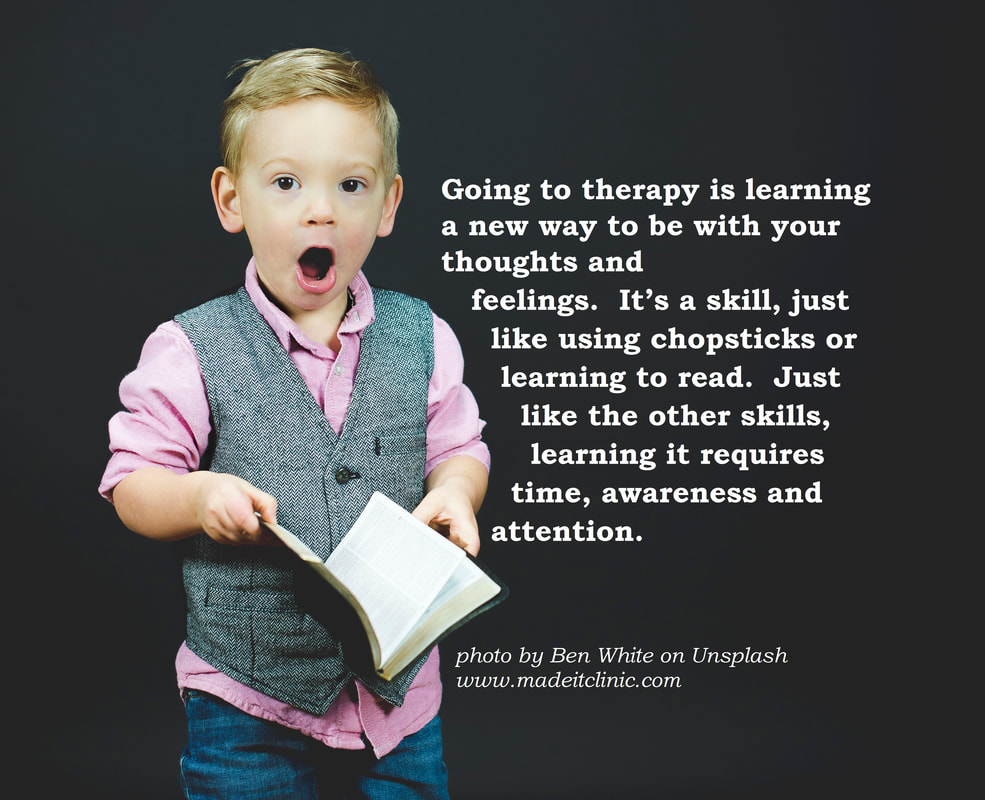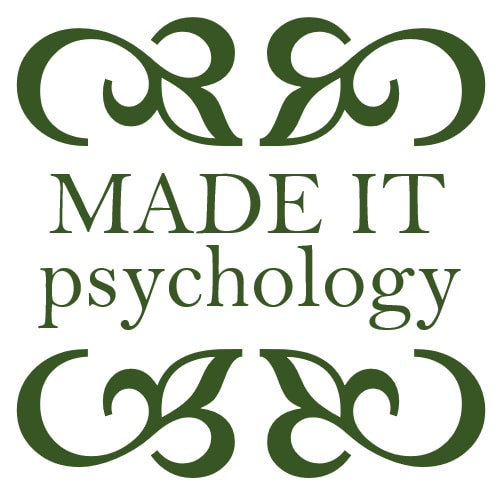|
Ever learnt a new language? Trained to run a marathon? If you were to tally up all the time you spent on the pursuit, how many hours did it take to become proficient?
Going to therapy is learning a new way to be with your thoughts and feelings. It’s a skill, just like using chopsticks or learning to read. Just like the other skills, learning it requires time, awareness and attention. Time Time is finite. We all eventually run out of it. To achieve anything, we need to allocate time to it. I often request that my clients attend therapy regularly to begin with, usually weekly or fortnightly. The reason is because this is the time someone tends to be most motivated to do the work it takes to change. During this time of motivation, I try to socialise us into spending time on the task. I will also set activities or readings to be done between sessions. This is a strategy to find time outside of the therapy context to continue developing our skills. Awareness Thoughts, feelings, and behaviours are so close to our ‘selves’ in proximity that they are often invisible. We think so much that we cease to see our thoughts. We learn to dismiss many body signals like hunger, tiredness, sadness, and boredom. We become so automatic in our daily tasks that they require little effort at all. These skills are important, however, when there is a mismatch of skills application to task (e.g. dismissing hunger when we really should be eating), then awareness is required to take us off autopilot. Therapy is a great place to build awareness of the processes that drive our thoughts, feelings, and behaviours. If I scanned my body, do I notice that I am still annoyed hours after something has happened? When did I start to learn that I should keep my opinions to myself? Am I really more efficient when I multitask? Once we are aware, then we can explore and change. Attention Just spending time on something doesn’t guarantee that we will achieve what we set out to achieve, because all time spent is not equal. Attention is the ability to focus on what we’re doing. The more attention we can dedicate to a task, the better we are able to engage in it. Learning a new skill requires attention. Therapy is the place that helps us focus our attention on what we are doing. There is one more aspect that helps when learning a new skill, and that is teaching it to others. When we explain the process to a novice, we are consolidating it in our own minds. Sometimes my clients may notice that I say ‘Can you explain that a bit more?’ or ‘Can you explain that in a different way?’ Just by hearing ourselves speak about something we usually take for granted helps us make sense of it for ourselves.
1 Comment
|
Archives
April 2021
CategoriesSocial Media |


 RSS Feed
RSS Feed